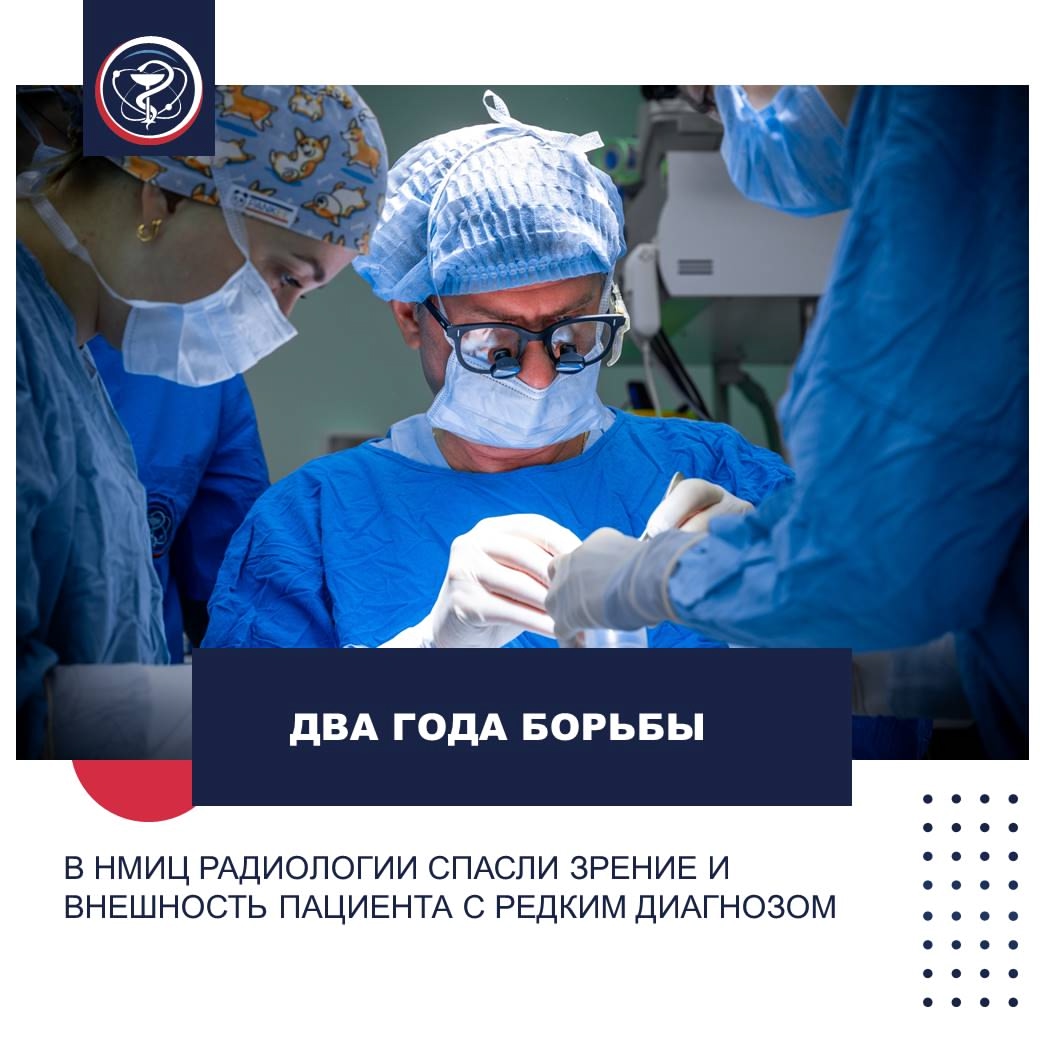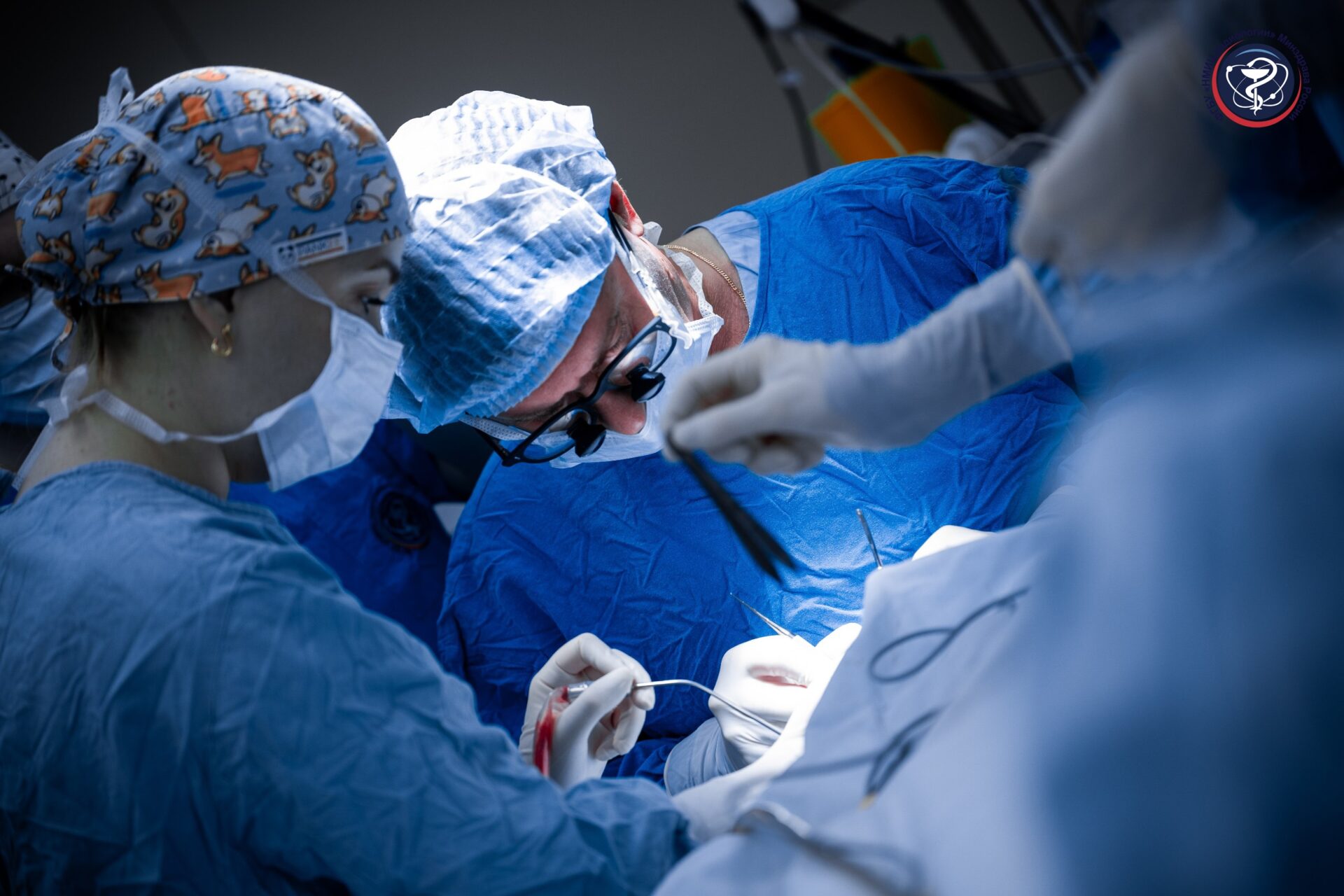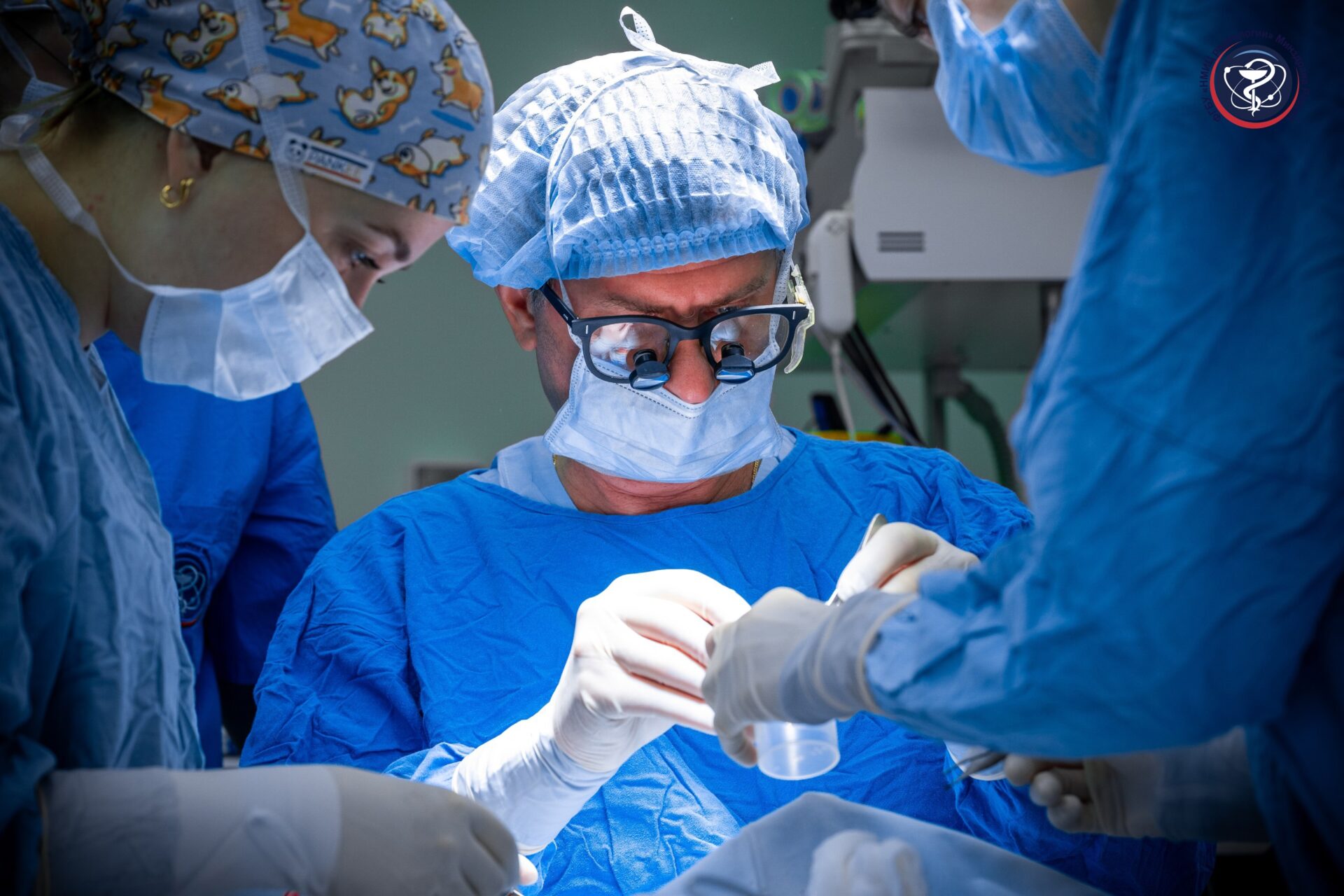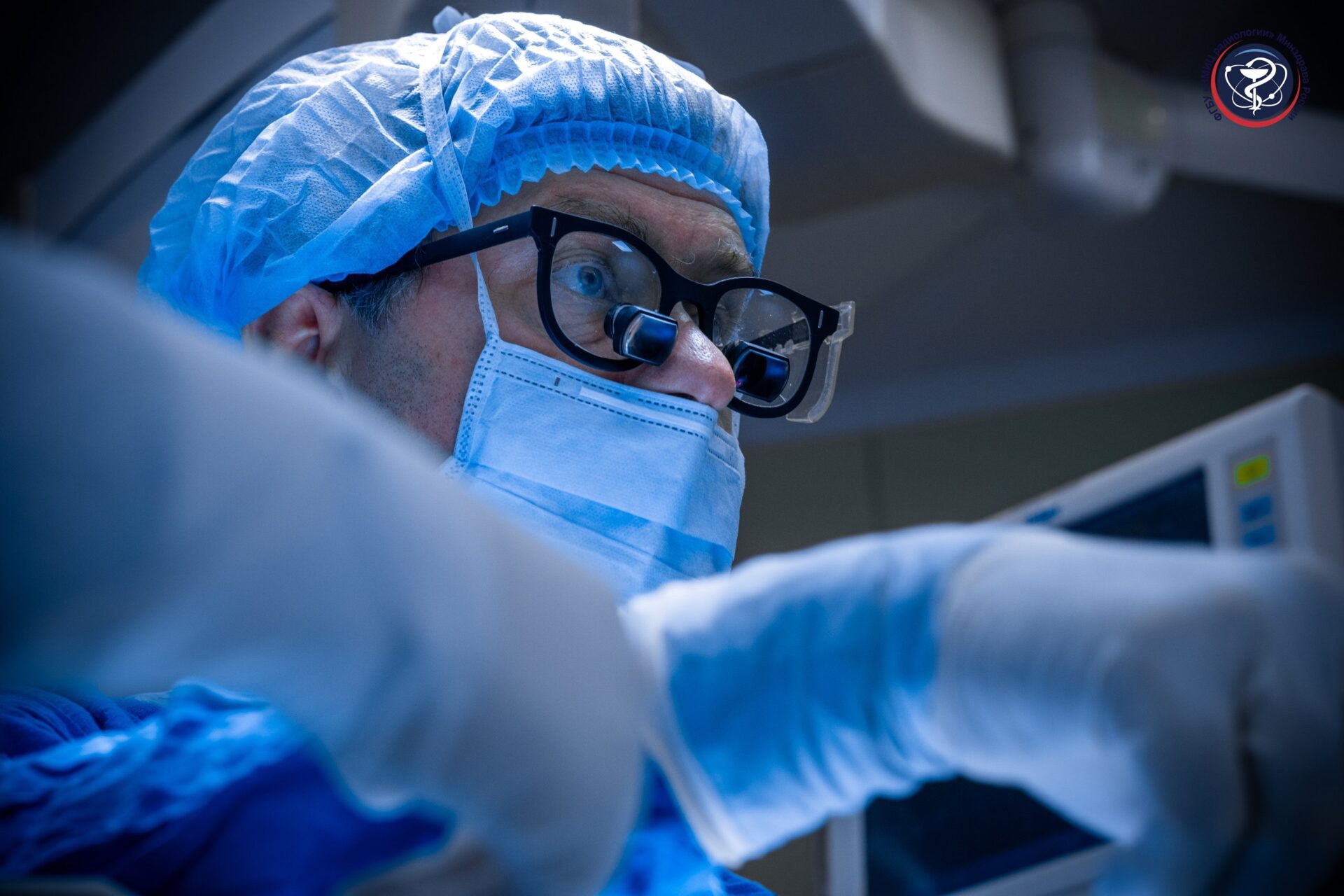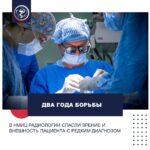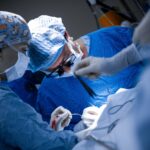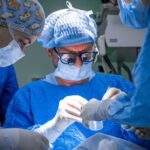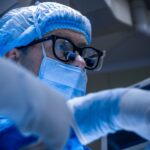TWO YEARS OF STRUGGLE: NMRRC SAVED A PATIENT’S VISION AND APPEARANCE WITH A RAREDIAGNOSIS – ENDOCRINE OPHTHALMOPATHY
In September 2025, the Department of Oncoplastic Surgery at the P. Hertsen Moscow Oncology Research Institute – branch of the National Medical Research Radiological Centre of the Ministry of Health of the Russian Federation — completed the treatment of a patient with severe endocrine ophthalmopathy. His journey to recovery took a full two years, and today the results impress not only the patient himself but also the team of doctors who supported him throughout this time.
The story began in 2023 when the man first sought help at the institute. By that time, the disease had already significantly altered his appearance: his eyes were protruding severely, his eyelids could not close, and his face had become asymmetrical. But the danger was not only in the external symptoms — endocrine ophthalmopathy is an autoimmune inflammation of the tissues around the eyes, which can lead to irreversible vision impairment.
Professor Dmitry Davydov, Head of the Oncoplastic Surgery Department at the P. Hertsen MORI, recalls that the team of specialists decided on surgery — bilateral endoscopic endonasal orbital decompression. “This minimally invasive technique allowed us to reduce pressure on the visual structures and stop the acute inflammatory process,” explains Dmitry Viktorovich.
The result was positive but not final. Unfortunately, the exophthalmos, that is, pathological protrusion of the eyeballs, persisted, along with double vision, which interfered with the patient’s normal life. In March 2025, doctors performed the next stage — bone orbital decompression.
During this complex reconstructive surgery, involving a multidisciplinary team of neurosurgery and oncoplastic surgery specialists, parts of the bony orbital walls were removed to create the necessary space for soft tissues and restore the eyes to their natural position. Thanks to the surgeons’ efforts, exophthalmos was reduced to 18 mm, the face regained symmetry, and visual functions improved significantly. The patient’s final stage remains — eyelid reconstruction surgery, which will complete the recovery process.
“In treating endocrine ophthalmopathy, every detail matters,” emphasizes Dmitry Davydov. “We build a personalized treatment pathway for each patient so that surgeries and subsequent rehabilitation are as safe as possible and yield the best possible results.”


